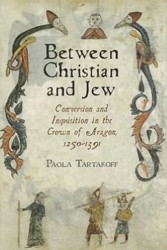Early modern Amsterdam was a prosperous city renowned for its relative tolerance, and many people hoping for a better future — away from persecution, wars, and economic malaise — chose to make a new life there. Conversos and Jews from many countries were among them, attracted by the reputed wealth and benevolence of the Portuguese Jews who had settled there. Behind the facade of prosperity, however, poverty was a serious problem. It preoccupied the leadership of the Portuguese Jewish community and influenced its policy on admitting newcomers: the struggle to keep poverty under control and ensure that finances were available for welfare was paramount. This book looks at poverty and welfare from the perspective of both benefactors and recipients. It analyzes benefactors’ motives for philanthropy and charts its dimensions. The book also examines the decision-making processes of communal bodies and private philanthropists, identifying the cultural influences that shaped their commitment to welfare. At the same time, it succeeds in bringing the poor to life, examining what brought them to Amsterdam; aspects of their daily life in the petitions they sent to the different welfare institutions; and the survival strategies offered by work, education, and charity. This ground-breaking, multi-faceted study of the dynamics of the relationship between the rich and the poor adds a nuanced new dimension to our understanding of Jewish life in the early modern period.

Nonfiction
Poverty and Welfare among the Portuguese Jews of Early Modern Amsterdam
- From the Publisher
January 2, 2013
Discussion Questions

Jewish literature inspires, enriches, and educates the community.
Help support the Jewish Book Council.



